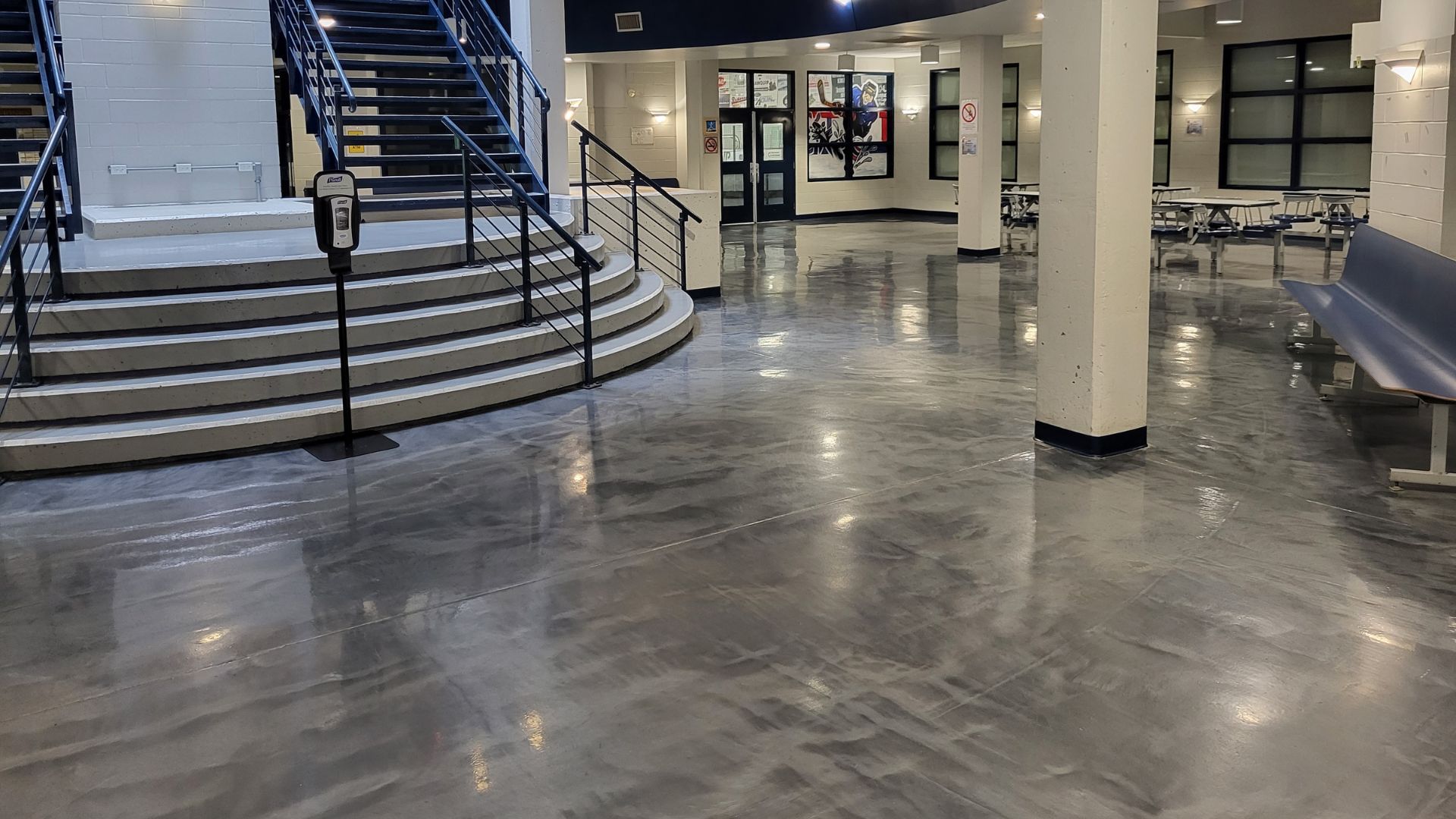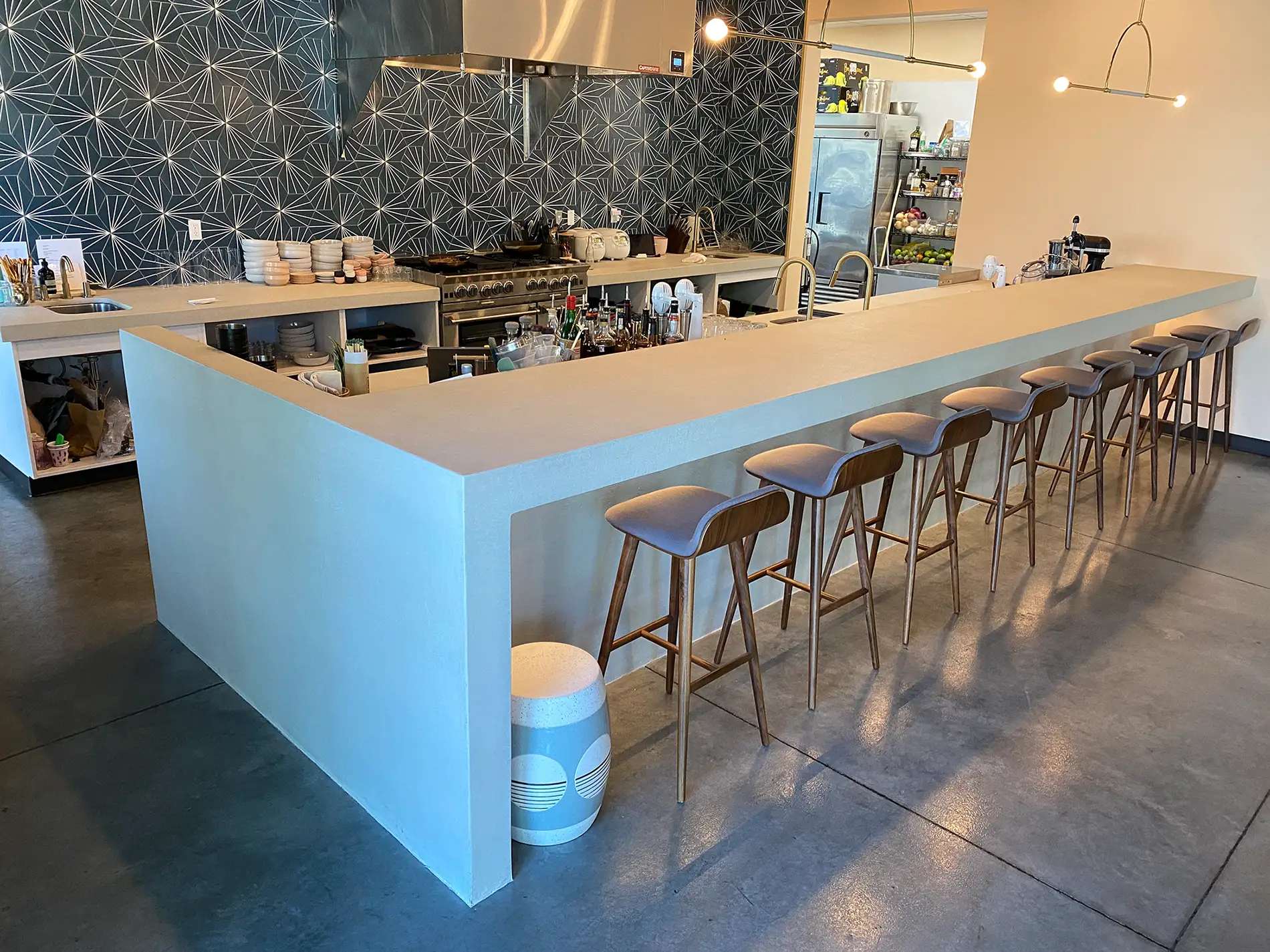- Blog
Commercial Epoxy Flooring Uganda
- By Fern Flooring Team
Introduction
Commercial epoxy flooring gives warehouses, factories, clinics, and retail spaces a durable, easy to maintain surface. We design and install epoxy systems that resist heavy loads, chemical spills, and constant foot and vehicle traffic. Our teams prepare the substrate, apply the right resin system, and finish with non slip textures where required, so your floor performs for years.
You need a floor that holds up to forklifts, trolleys, and daily cleaning routines. We advise on the best epoxy type for your use, whether a thin wear coat for light duty areas, a heavy duty mortar system for loading bays, or an antimicrobial finish for clinical spaces. We match the product, surface profile, and curing schedule to your operational plan so the work fits into your timetable.
We work with businesses, architects, facility managers, and contractors across Kampala, Jinja, Entebbe, and trading centres. Our service covers supply of resin, primers, fillers, and top coats, full installation, and ongoing maintenance.
What our commercial epoxy service includes
Site assessment and moisture testing, substrate preparation through grinding or shot blasting, primer application, base coats, screeds for leveling, quartz broadcast or mortar systems for heavy duty use, and final seal coats. We offer anti static, conductive, and antimicrobial epoxy formulations for specialised needs. We handle joint detailing, coving, and flush transitions to other floor types so cleaning remains simple.
Materials and workmanship explained
Epoxy systems vary by resin type, solids content, and aggregate. Solvent free, high solids epoxies give thicker films and stronger mechanical properties. For heavy loading areas we use cementitious epoxy mortars or self levelling epoxy with hard aggregates. For food processing and clinics we specify seamless, non porous finishes with certified antimicrobial properties.
We follow manufacturer specifications for mix ratios, temperature controlled curing, and pot life. We do not skip substrate profiling or moisture control, because failures usually start at the slab. Our teams record moisture readings and surface profile results before proceeding, and we provide these records with the handover.
Benefits for Ugandan commercial sites
Epoxy floors are durable, chemical resistant, and easy to clean. They reduce dust from old concrete slabs and improve hygiene standards in clinics and food premises. They reflect light, improving visibility and reducing lighting costs in warehouses. A sealed, seamless floor reduces places for dirt and bacteria to hide, helping you maintain a safer work environment.
Epoxy also offers design flexibility for safety markings, safety zones, and branded finishes. We apply different colours and line markings to codify traffic flow, pedestrian zones, and hazard areas. We work with your health and safety team to create practical floor layouts that support operations.

Examples you will recognise
A Kampala cold storage facility required a slip resistant, rapid cure floor to meet tight turnaround. We applied a rapid set epoxy with broadcast quartz and finished with a sealed top coat so pallet trucks moved safely from day two. A clinic in Entebbe needed an antibacterial, seamless floor. We installed a hygienic cove detail and an antimicrobial top coat for easier cleaning and infection control.
Maintenance and lifecycle
Routine cleaning involves sweeping and damp mopping with neutral pH cleaners. Harsh acids or strong solvents will degrade the top coat. We offer maintenance visits for high traffic areas, where we inspect for coating wear and perform restorative recoats. With scheduled care and light repairs, many epoxy floors remain serviceable for a decade or longer.
Safety, compliance, and warranties
We install slip rated finishes where required and supply material data sheets for fire performance, chemical resistance, and VOC levels. We provide a workmanship warranty and pass through manufacturer product warranties. We document the project with photos and test results so your facility records remain complete and auditable.
Cost drivers
Cost depends on substrate condition, square metre area, system type, and access constraints. Smoothing and patch repairs increase cost, as does the need for rapid cure products or anti static systems. We provide a clear line item quote showing material, labour, surface preparation, and finishing so you see what influences price.
Rubber Flooring and Gym Flooring Uganda
Composite Decking Uganda
Marble Flooring Uganda
Artificial Grass Turf Uganda
Top 8 related FAQs
What types of epoxy systems suit warehouses and heavy traffic areas?
For warehouses we recommend a mortar or heavy duty self levelling epoxy with quartz or grit broadcast. These systems resist impact from forklifts and abrasion from pallet trucks. They also provide a thicker wearing surface that lasts longer than thin coatings under heavy use.
We assess traffic maps and storage layouts to determine wear patterns, and then specify a system that offers both durability and simple maintenance. We include coving at edges and detail joints so cleaning equipment moves freely without damaging the floor.
How long does an epoxy installation take and how does it disrupt operations?
Small areas require two to three days including preparation, primer, and one or two top coats. Larger projects and heavy duty mortar systems require more time for grinding, repairs, and staged curing. We produce a project schedule and work in phases to keep disruption minimal.
When operations must continue we work in shifts or after hours, and we protect adjacent areas from dust and fumes. We use rapid cure products when a quick turnaround is essential, and we supply a clear reopening time so your team returns safe and ready.
How do you prepare a concrete slab for epoxy to prevent failures?
We profile the surface by grinding or shot blasting to create a mechanical key for the coating. We repair cracks, spalled areas, and joints with matching mortars. We measure moisture content and apply damp proof primers where needed to avoid adhesive failure.
Proper profiling and moisture control form the foundation of a lasting epoxy floor. We document readings, show clients the preparation work, and only proceed when the surface meets specification.
Are epoxy floors safe for food processing and healthcare environments?
Yes, seamless epoxy systems with appropriate certification provide hygienic, non porous surfaces suitable for food and healthcare. We install coved junctions between floor and wall to remove crevices where bacteria hide. We use food grade, low VOC materials where required.
We also apply antimicrobial top coats for added protection and advise on compatible cleaning regimes. We coordinate with environmental health officers to meet regulatory expectations.
What about anti static and conductive epoxy requirements?
For electronics production and certain warehouses an electrostatic discharge safe floor prevents component damage. We specify conductive primers and top coats with measured surface resistance. We test the finished floor to confirm compliance with the required ohm range.
We document test results and include grounding or earthing details as part of the installation to ensure the system performs in your operational environment.

How do you handle joints and transitions to other floor types?
We carefully detail movement joints and install flexible joint sealants where required. For transitions to tiles or external paving we use recessed profiles that allow carts and wheelchairs to pass smoothly. We finish thresholds to match adjacent floor heights to avoid trip hazards.
Early coordination with other trades prevents rework. We provide cutting lists and install sequence recommendations to the site team so trades work together efficiently.
What maintenance schedule keeps epoxy floors in service longest?
Monthly inspections for high traffic areas help spot wear early. Daily sweeping and routine damp mopping with neutral pH detergents removes grit and contaminants that abrade the surface. For heavy soiling we perform restorative cleaning with safe scrubbing methods and recoat worn areas.
We offer maintenance contracts for regular inspections and light restorative work, which prolongs service life and keeps your floor attractive and safe.
How do I book a site visit and reserve the installation team?
Contact our office with your project address, floor area estimate, and preferred assessment date. We schedule a site visit, bring samples, and run moisture and surface profile tests. After the assessment we issue a written quote and project plan.
To reserve the team pay a deposit and confirm start dates. If you need transport to the site we assist with vehicle booking for the assessment day. Call our office to reserve a car and driver, and we will coordinate arrival times so the visit proceeds smoothly.
Conclusion
Fern Flooring Experts supplies, installs, and maintains commercial epoxy floors across Uganda. We focus on durable systems, correct preparation, and practical maintenance plans so your facility stays operational and safe. We work with businesses, architects, and facility managers to deliver fit for purpose floors on time.
To book a site visit send your project address and preferred date by phone or message. We will arrange assessment, bring samples, and issue a clear quote. To reserve a car for site access or material delivery call our office and request vehicle booking.